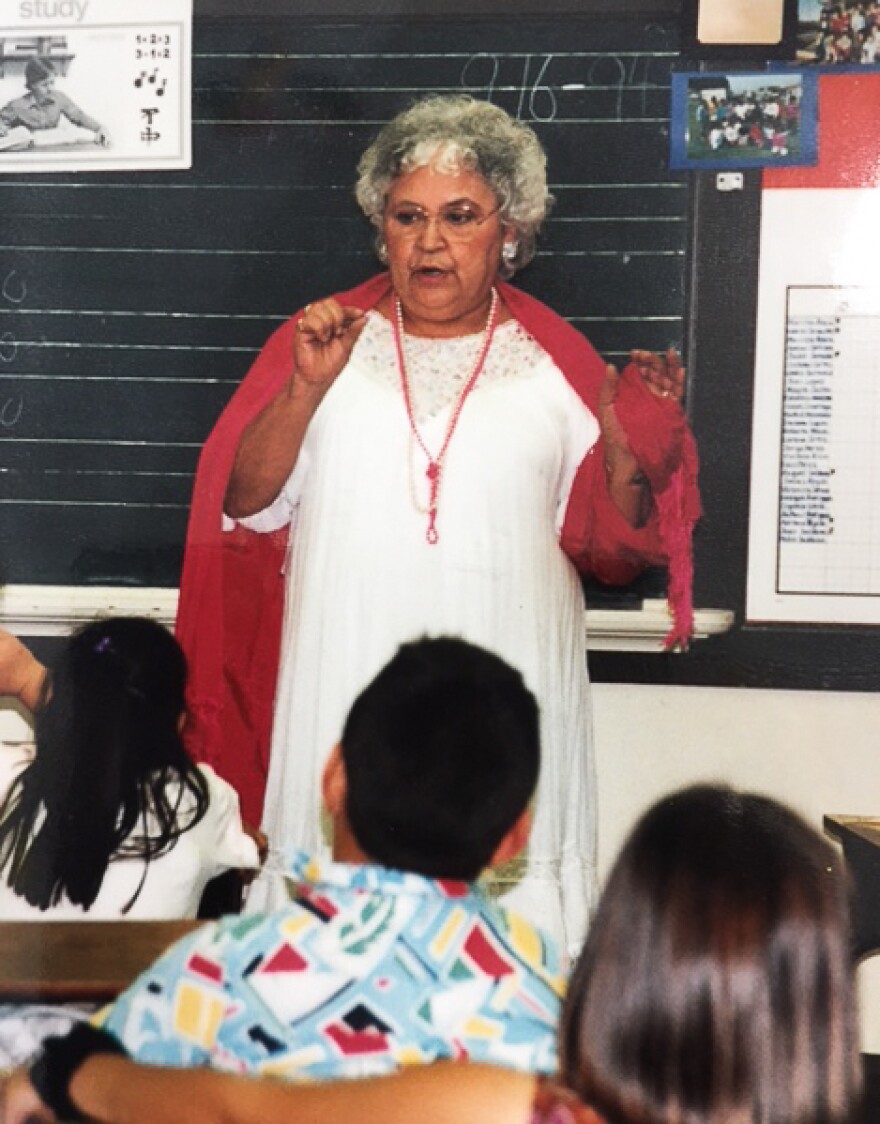Her mother was an immigrant from Mexico. Her father was a foreman at a food-packing plant. She and her four siblings were raised together in a small trailer in the late 1960s.
So, when Alicia Beltrán-Castañeda's family was finally able to afford a house of their own, it was a special moment.
"I remember watching my dad paint the walls, and just thinking, 'This house is so huge!' " Beltrán-Castañeda tells her own daughter Serena Castañeda, on a visit with StoryCorps in Salinas, Calif. "I loved my room. And I had a nice full-sized bed and my pink cover and my dust ruffles."
Her father died when she was just 13, leaving her mother, a community coordinator for the local school district, to raise five children on her own with a mortgage to pay. Yet, despite the strain of their financial situation, her mother didn't lose sight of those less fortunate than her own family.
"I remember, I came home one day and my bed was gone," Beltrán-Castañeda says. "And so when my mom got home, you know, I kind of gave her a little bit of attitude, like, 'Where's my bed?' "
Her mom told her that she had given it to a family that had come from Mexico with nothing. At the time, Beltrán-Castañeda was unimpressed: It wasn't her problem, she told her mother. She just wanted her own bed.

And so, her mother told her to come with her.
"She took me to the kitchen, she gave me some grocery bags. We started clearing out the cupboards — cans of peas, cans of corn. And I was putting them in the bag," Beltrán-Castañeda says, when finally she asked her mom just what it was they were doing — only to be told to be quiet and keep filling up the bag.
Then her mother took her to the house that now had Beltrán-Castañeda's bed. In the house was a family of seven, Beltrán-Castañeda says, and in her bed now was the mother of a newborn child. All about the mother were her children, in a one-room house with a dirt floor.
"I walked out of there crying," she tells her daughter. "Because I was ashamed. Because I didn't realize just how much Grandma gave us. And these parents just want food, and they're the people that keep this whole area going because they're the farmworkers."
In that moment, she felt like an ungrateful kid.
These days, Alicia Beltrán-Castañeda is a special education teacher in Salinas, Calif., in the very same district where her mother worked and where she and her daughter attended school. And Beltrán-Castañeda still carries with her the lessons her mother taught her.
"You know, she had high standards in herself," she tells her daughter. "And I cannot think of anybody more wise than Grandma."
Audio produced for Morning Edition by Von Diaz.
StoryCorps is a national nonprofit that gives people the chance to interview friends and loved ones about their lives. These conversations are archived at the American Folklife Center at the Library of Congress, allowing participants to leave a legacy for future generations. Learn more, including how to interview someone in your life, at StoryCorps.org.
Copyright 2021 NPR. To see more, visit https://www.npr.org. 9(MDA5NTM4MTIyMDE0MTg3NDc2MTVlZjdmNQ001))


